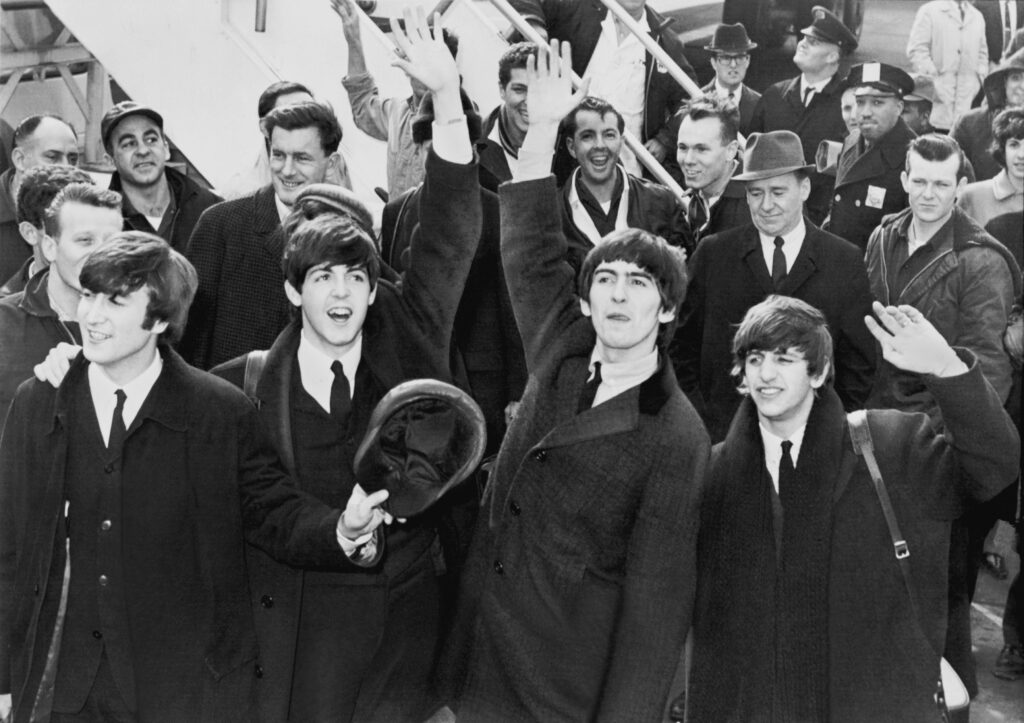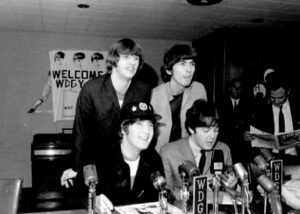
I can rarely say that a 55-year old album is still on my heavy music rotation to this day.
The Beatles sixth album “Rubber Soul” was released on December 3, 1965.
The album title is derived from the term “plastic soul,” a colloquialism for un-authentic soul music, with the Beatles showing humility and admiration towards the African American artists who defined the soul genre.
Being the first album free of concert, radio or film commitments, this album began a creative renaissance for the band, allowing them to focus more on production rather than stage performing.
Combining the musical talents of John Lennon, Paul McCartney, George Harrison and Ringo Starr, the Beatles have been widely regarded as the greatest band of all-time.
They have become my favorite musical group not only because of their status, but also because of the impact they have had on the music industry that is still seen today.
I often group the Beatles into two different stages: the early 60s mop-top boy band that everyone loved, and the mid to late 60s psychedelic geniuses that defined a generation.
“Rubber Soul” seems to begin their transformation into the band’s latter identity.
Once I first found this album last year I immediately became hooked, with instrumental harmony and vocal stylings I hadn’t really heard in music before.
Since then, it’s almost become comfort music to put on, and with the unpredictability of 2020 so far, I’ve needed that comfort now more than ever.
The opening track “Drive My Car” is about an aspiring actress who promises she’ll make the listener her chauffeur .
George Harrison suggested a dual guitar-bass riff in the style of the Otis Redding single “Respect,” that helps the opening track really come alive, providing an up-beat opener to an unforgettable album.
The combination of the guitar, lyrics and drums make for a head-banger of an opening track.
The follow-up “Norwegian Wood” takes a slow route, with mostly Lennon’s vocals and the sitar being emphasized.
Lennon wrote the song about an extramarital affair he had, but kept the lyrics vague to hide the true meaning from his wife at the time.
The Mixolydian melody creating the acoustic drone affect emphasizes the confused theme of the song.
Lennon’s next track in the album “Nowhere Man” is the first Beatles track to not focus on a relationship, instead dealing with his self-loathing and existential dread with drugs.
“He’s a real nowhere man, sitting in his nowhere land, making all his nowhere plans for nobody,” greatly emphasizes a feeling of not knowing where to go in life, a struggle many listeners may have.
Harrison follows with the track “Think for Yourself.”
“I’ve got a word or two to say about the things that you do,” are opening lyrics that seem to have clear animosity towards a friend or lover.
McCartney’s bass, coupled with Harrison’s voice, gives it this harsh yet still catchy vibe.
“If I Needed Someone” also shows off Harrison’s songwriting capabilities.
“Had you come some other day then it may not have been look this, but you see now I’m too much in love,” shows the theme of talking to a potential lover he would pursue if he wasn’t already in a relationship.
The guitar riff and various vocal harmonies make this track incredibly smooth.

“Michelle” takes a more comforting approach to a lover, but a love that ultimately couldn’t work out.
Paul McCartney told 60 Minutes that the song originally was inspired by when he would try to pick up girls at parties with a fake French accent during the band’s early years.
“Years later John would say ‘Remember that crazy little French thing you had’,” McCartney said recalling the song’s inception. “You should finish that.”
“I will say the only words I know that you understand” are followed by a poorly translated French phrase solidifying a relationship that wouldn’t happen due to a language barrier.
It’s a melancholy track, but one that McCartney pours his vocal passion into.
Lennon’s tracks on this album don’t have the happiest of tones, but seem to have the most impact to me as a listener.
“In My Life” was what Lennon considered his first “piece of art” with lyrics reminiscing over his childhood life in Liverpool.
“I know I’ll always think about them, in my life I’ve loved them,” relate to the past people Lennon had lost up unto that point in his life.
The band’s record producer, George Martin, even included a Bach-inspired solo towards the end of the song that fit with the nostalgic feel.
Though I feel some tracks like “What Goes On” and “Run for Your Life” fall short of the song standards, this album ultimately delivers in creating an entrancing musical experience.
The album was ranked fifth in Rolling Stone’s “500 Greatest Albums of All Time,” and it’s easy to see why.
“Rubber Soul” was the album that really solidified my interest in the Beatles, and I will always keep listening to it as a result.

